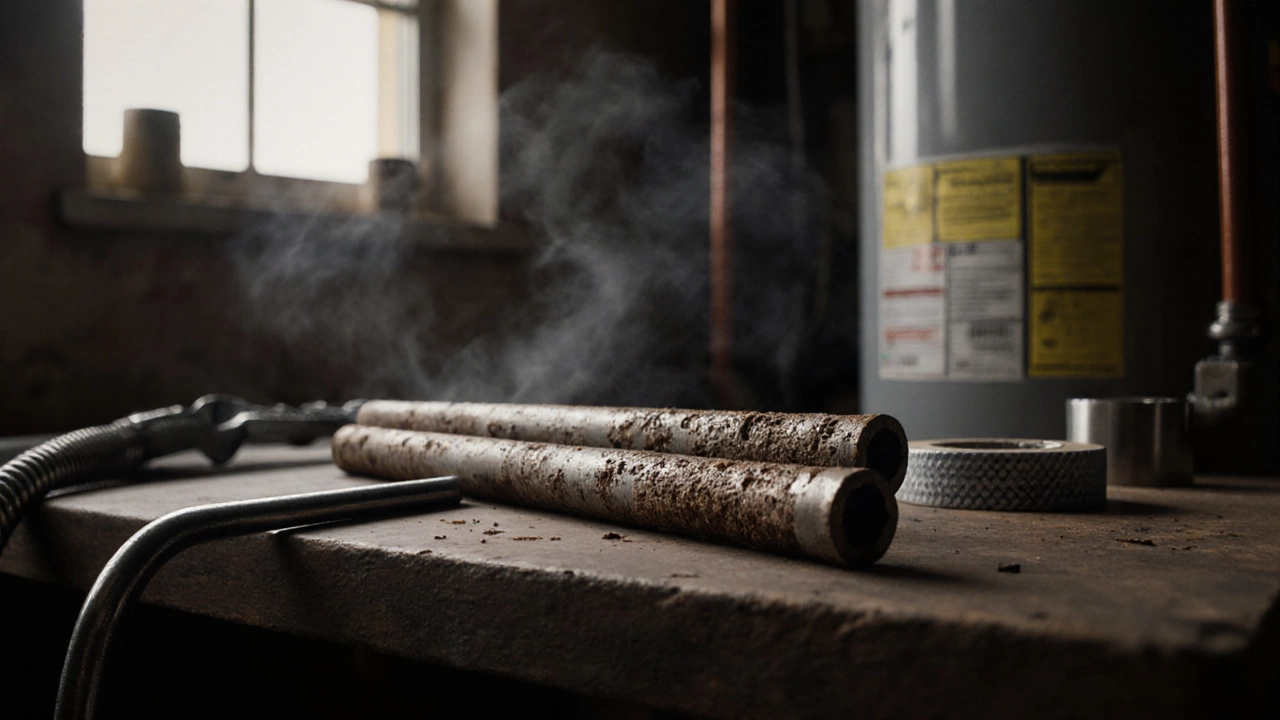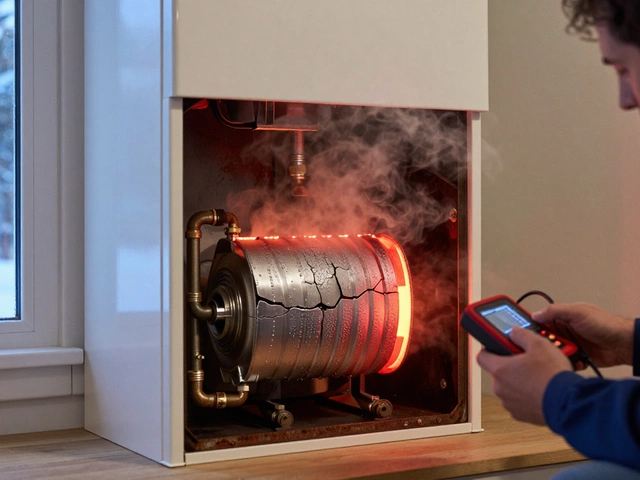How Much Does It Cost to Fix a Boiler in New Zealand?
January 29 2026Water Heater Anode Rod: What It Does and When to Replace It
When you think about your water heater, you probably focus on whether you’ve got hot water—not the quiet hero inside that keeps it from rusting away: the water heater anode rod, a sacrificial metal rod installed in the tank to prevent corrosion by attracting destructive minerals and electrolytes. Also known as a sacrificial anode, it’s the reason your tank lasts 8 to 12 years instead of 3. Without it, the steel lining of your tank would eat itself from the inside out, leaving you with a leaky, useless heater and a big repair bill.
The anode rod, a long steel wire coated in magnesium, aluminum, or zinc, works by being more reactive than the tank’s metal. It gives up its ions first, corroding slowly over time while shielding the tank. Think of it like a bodyguard taking the bullet so the VIP stays safe. The type of rod matters—magnesium rods, common in softer water areas, offer strong protection but wear faster, while aluminum rods, better for hard water and well water, last longer but can cause odor issues. Zinc rods are used when sulfur smells are a problem. If you’ve ever smelled rotten eggs from your hot water, it’s likely the anode rod reacting with bacteria.
Most people never check their anode rod until the heater starts leaking. That’s too late. By then, the tank is already damaged. A visual inspection every 2 to 3 years can save you hundreds. If the rod is worn down to less than half its original thickness, or if you see bare steel wire poking through, it’s time to replace it. It’s not hard to do yourself—you just need a socket wrench, a new rod, and a little patience. The cost? Under $50 for the part, versus $800+ for a new water heater.
Replacing the anode rod isn’t just about fixing a part—it’s about extending the life of your entire system. It’s the single most cost-effective maintenance task you can do for your water heater. And if you live in an area with hard water or high mineral content, skipping this step is like ignoring oil changes in your car. You’re not saving money—you’re just delaying the inevitable.
Below, you’ll find real guides on water heater maintenance, signs your heater is failing, and how to decide whether to fix or replace it. These posts aren’t theory—they’re what homeowners in Bedford and beyond have used to avoid surprise breakdowns, reduce energy bills, and stretch the life of their systems. Whether you’re dealing with no hot water, strange smells, or just want to make your heater last longer, the answers are here.
 6 Nov
6 Nov
How Much Does It Cost to Replace the Anode Rod in a Water Heater?
Replacing your water heater's anode rod costs $50-$350, depending on whether you DIY or hire a pro. It’s a simple fix that can extend your heater’s life by years and prevent costly leaks.
Read More...



